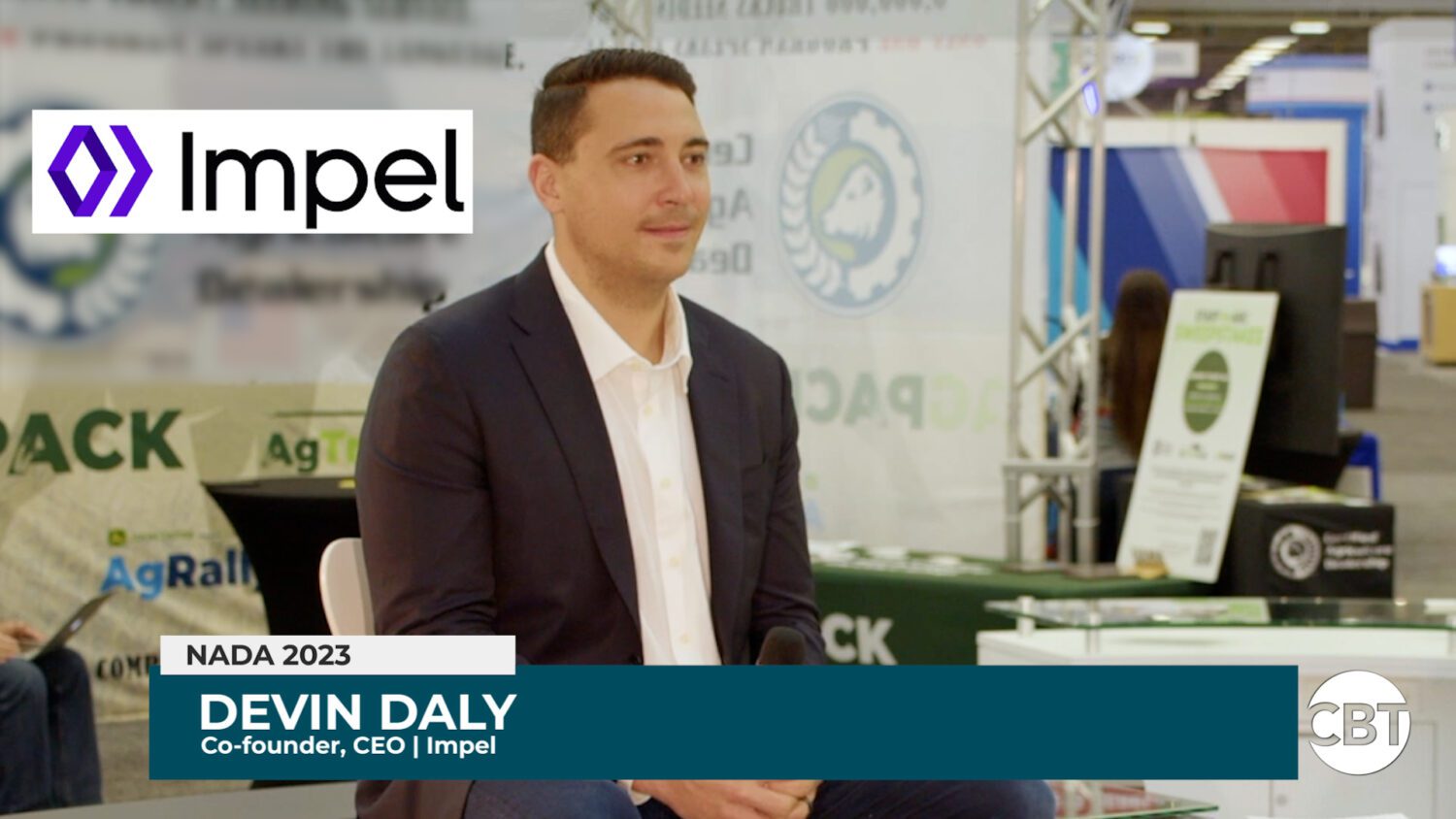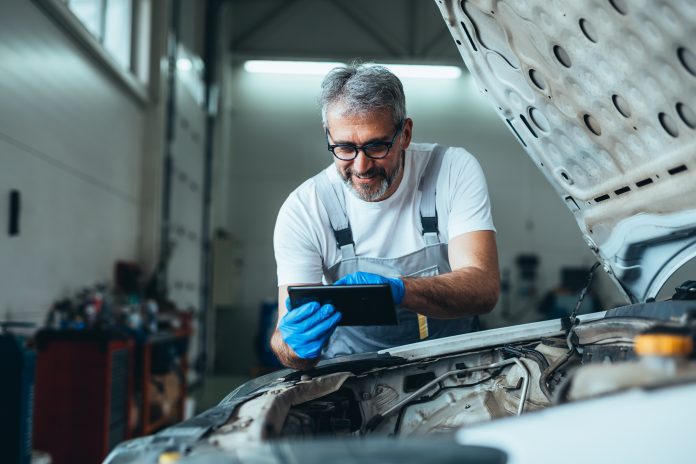The automotive industry remains vulnerable to economic uncertainty and cyclicality in demand due to reduced consumer purchasing power. While per-unit profitability is now almost double pre-pandemic levels and inventory levels are stabilizing, sales volume continues to fluctuate. Front end profit is gradually trending downward,1 impacted by global supply chain disruptions and rising manufacturing overhead costs.
The fact is that consumers are buying fewer cars than they used to. In the early 2000s, the average driver was expected to purchase 13 cars in their lifetime, a number that fell to 9.4 just a decade later.2 While there are many reasons for this, unstable economic conditions are driving consumers to hold onto their vehicles even longer.
According to NADA, while vehicle sales account for 89% of total dealership revenue, up to half of a dealer’s gross profits come from fixed ops, even though only 34% of customers return to dealership service centers after the sale. There is an outsized opportunity to maximize customer lifetime value (CLTV) by growing service loyalty. In addition to increasing long-term revenue and profit, greater service loyalty enhances business stability and helps to insulate auto retailers against economic fluctuations, all the while helping improve CSI & reputation.
Why Fixed Ops Is the Key to Revenue Growth in a Down Market
After the vehicle sale, two thirds of a dealership’s customers turn to third-party independent mechanics or lube shops for vehicle servicing.3 That’s a lot of lost profit for dealers, especially considering the much higher margin profile of fixed ops revenue when compared to unit sales. Establishing fixed ops as the hub of the customer experience and the main driver of long-term profit is critical from the outset: if a customer doesn’t return for their first service, it’s unlikely they’ll ever return. That missed opportunity compounds across the ownership lifecycle. Multiply that by thousands of customers, and revenue loss can easily run into the millions of dollars.
The more effective and efficient fixed ops departments are, the closer dealers can get to 100% service absorption, which occurs when the parts and service department’s operating gross profit covers all of a dealership’s total operating expenses (also known as overhead). Higher service absorption means better insulation from market swings and a more competitive sales department. Unfortunately, the average service absorption rate in the first quarter of 2021 among US dealerships was only 57%4, which means most dealerships risk operating at a loss if there is a drop in sales.
Improved service retention drives incremental revenue and profit, while also creating a more robust long-term unit sales pipeline: according to industry statistics, three quarters of car owners buy their next car from the same dealership where they had it serviced. Service loyalty helps ensure future unit purchases and the corresponding service revenue. This virtuous cycle results in the highest possible CLTV.
The Limitations of Traditional Service Outreach
Conventional approaches for generating service business are impossible to scale effectively. Optimal customer loyalty simply doesn’t occur after one transaction. There are an overwhelming number of touchpoints needed to create and cement a bond of service loyalty that maximizes CLTV: first service, next service, state inspections, deferred or declined services, missed intervals, recalls, warranty expiration, and more. Existing staff simply don’t have the time to focus on service follow-up and outreach, and hiring additional staff is untenable, simply because it would take massive amounts of human labor to search through the thousands of customer records stored in a typical dealer management system (DMS), investigate the sales and service history, and then follow-up with each one.
Some dealerships have implemented basic marketing automation products like email platforms, auto-responders, and SMS reminders to address the service communication challenge, but unfortunately, this often results in a complex collection of tools that are costly to operate and woefully ineffective. Costs add up, and the patchwork of tools creates communication gaps that make a seamless customer experience impossible. Moreover, many tools are limited in scope, leaving a great deal of manual work for personnel that are already stretched thin.
Effective customer lifecycle management requires more advanced technology and automation that is capable of continuously mining the DMS to analyze sales, service history, and repair order data. It also requires predictive modeling and personalization in order to deliver the right message at the right time to each customer at every stage of the ownership lifecycle. Traditional approaches and basic software solutions simply can’t cost-effectively drive results at scale.
Sponsored Content by Impel

Scaling Service Outreach and Customer Retention With AI
The volume or customer records in a typical DMS is massive, often running into the tens of thousands. And routine question handling, appointment coordination, email and text responses, and other low-level tasks sap valuable personnel bandwidth. It’s impossible for dealership personnel to meet the demands of running an effective service bay operation while also engaging in large-scale database mining, outreach, and follow up.
Fortunately, AI technology offers a solution that can deliver enhanced customer service at massive scale. AI-driven automation can continuously mine the database and deliver personalized outreach based on sales data, service history, driving habits, and OEM recommendations. When deployed at scale, AI can be used to streamline the entire service communication function by providing a full-fledged business development capability without the need to hire additional staff.
AI communications significantly enhance existing service team productivity by handling routine outreach, automating follow up, responding to customer questions, and driving customers to book service appointments directly on the dealership’s service scheduler. Conversational AI technology that leverages natural language processing (NLP) and machine learning (ML) capabilities can engage customers with human-like interaction, freeing up service personnel to focus on delivering an outstanding white-glove customer experience on the phone or in person. A powerful ancillary benefit is that proactive AI communications can help reduce inbound phone call volume -– a major pain point for dealers — by proactively reaching customers first.
Additionally, AI technology can help secure not only future conquest sales, but also retention sales, leveraging automated equity mining to send timely and personalized equity offers to eligible customers based on DMS data and history.
The Time for Automated Service Communication is Now
As market conditions remain stressed and vehicle ownership lifecycles stretch, dealers have no choice but to focus on optimizing fixed operations. AI-powered automation is the fastest-growing solution for enabling personalized outreach and engagement at scale. In addition to driving greater service revenue, enhanced communications lead to greater customer lifetime value – and future unit sales: studies show that approximately 74% of car buyers whose vehicle was serviced by the dealership of purchase are likely to return there to buy their next vehicle.5
AI is changing the auto retail landscape, and large-scale adoption will enable dealers to thrive in an increasingly unpredictable market. Service is the perfect place to begin.
Sources
1 J.D. Power-LMC Automotive Forecast December 2022 | J.D. Power (jdpower.com)
2 Why Brand Loyalty Is Fading Among Car Buyers | TIME.com
3 2021 Cox Automotive Service Industry Study (coxautoinc.com)
4 Best Practice for Optimizing Service Absorption and Dealership Profitability
5 https://www.coxautoinc.com/learning-center/2018-fixed-ops-study/



